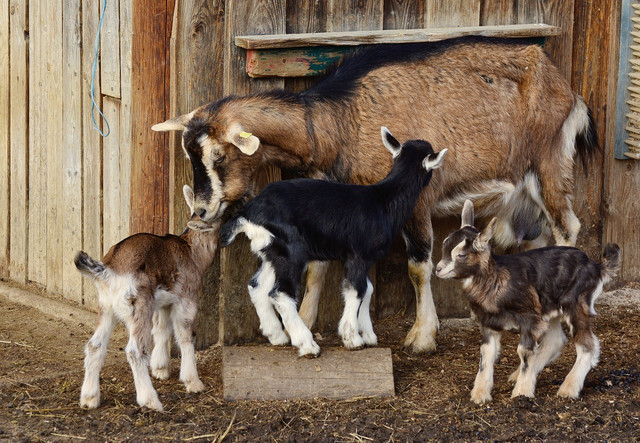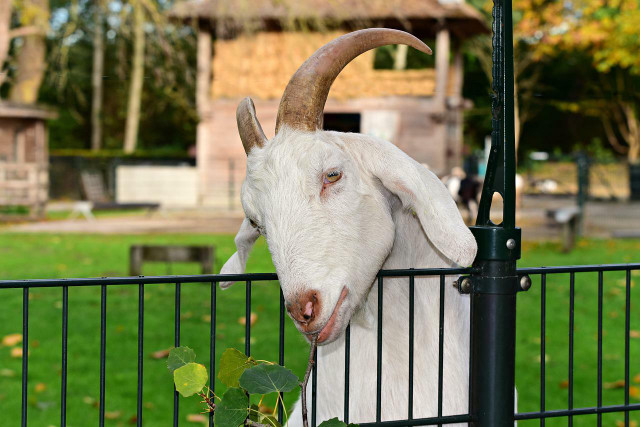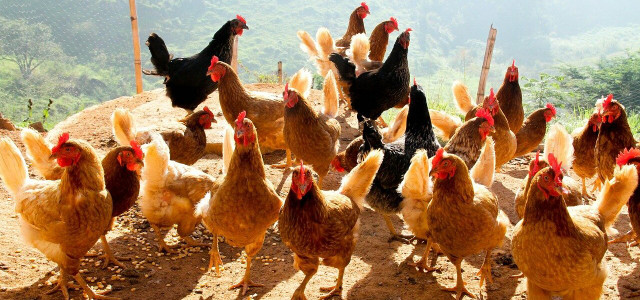If you are interested in owning goats as pets, get informed about the legal situation, care requirements and ethical considerations. Read on to find out if pet goats are for you.
While goats are usually kept as livestock, maybe you have the space and desire to have goats as pets. The breed, your location and ability to care for one, and your ethical beliefs all play a part in this choice.
Legality of Pet Goats in the US
Like many laws in the US, the legality of owning a pet goat varies between states. Some states require a permit and some don’t, while others ban it altogether. Check your local zoning laws to see if you can keep a goat where you live, whether in a city or the country. Some states that allow or used to allow pet goats without a permit include:
- Kentucky (if derived from the wild goat or bezoar species)
- Massachusetts (domestic goat)
- Montana
- New Jersey (pygmy goats)
- Oklahoma
- Oregon
- Rhode Island (domestic goats)
- Tennessee
- Utah (all goats other than the Rocky Mountain goat)
- Virginia
- Wyoming
Meanwhile, some states require a permit for goats while others have a direct ban. The states where owning a pet goat is or was banned are:
- Arizona
- Nevada
- Washington State
Whether it is a specific species of goat, height, width, or number, there are rules that can be found easily online. Check the current rules of your state before you commit to purchasing a pet goat, and make sure you have the necessary permits.
Taking Care of Your Pet Goat

Space
First, the amount of space you need in square feet depends on how many and what type of goat you want to keep as a pet. The minimum you need for one, depending on species and location, should be multiplied by how many you want in total.
The goats should have adequate space to graze and plenty of sunlight and shade. Homes with acreage are better suited to owning a goat and it is not recommended to keep one in an apartment. Furthermore, it may not be permitted in the city as they are often counted as an agricultural species.
Shelter
Goats are very good at jumping so a fence must be built around their enclosure with a minimum of four feet in height. It is also important to provide shelter, as goats need to be protected from the sun, elements and other animals. It is better to build one with a door that is wind and draft resistant and can be opened or closed.
The size of the shed or barn depends on how many goats you have and your budget. If there are babies, it is best to build smaller ones with a larger one for the mother. Windows are good for the goat’s shelter but make sure they can’t jump through them and hurt themselves.
Food and Water
Although goats tend to graze on weeds and grass, it is not likely your lawn has enough to sustain a pet goat. Allow different foliage to grow in their enclosure for food and also give them an above-ground feeder. In the feeder, you should supplement what they miss from grazing with hay, greens, and any high-protein grains you have.
Do not plant garden flowers in the enclosure, to prevent them from eating anything toxic and deadly to them. Goats eat a lot, so have the proper amount of food and ensure they get it regularly. Because goats drink a lot as well, clean and refresh their water source daily.
Did you know that many beautiful houseplants can be poisonous to other pets as well? Check out our list of 13 houseplants that are safe for cats and dogs.
Health
Goats are susceptible to many viruses. Find the closest veterinarian that cares for animals like goats and practice routine vaccinations and preventative treatments. Some common diseases and illnesses that plague goats include:
- Bladder stones
- Contagious pustular dermatitis (scabby mouth)
- Coccidiosis: a parasitical infection in the intestines
- Caprine arthritis encephalitis: a deadly immune system disease that is highly contagious amongst goats
The Pros and Cons of Pet Goats



Now that you know how to care for your goat, what are the pros and cons — and is it ethical to keep goats as pets?
Pros
- Their small size makes them easier to manage.
- Goats can be good for the health of your acreage because they graze.
- They are easy for children to feed.
Cons
- Males can become more aggressive during mating season.
- They can’t protect themselves as well as dogs or cows.
- Goats require much time and attention, so are not suited for individuals who travel much.
Ethics
Goats are one of the oldest domesticated animals after being domesticated around 10,000 years ago. This means the idea of owning goats has a long history. Unlike many other “exotic” pets (see for example A Fox as a Pet? Why That’s Not Cute but Cruel), goats have been domesticated for a very long time and the relationship seems to work well.
As long as your goats are properly cared for with enough food, water, shelter, space, and medical attention, there should be nothing wrong with owning goats. Keep in mind that it is also your responsibility to care for any offspring the goats may produce; whether that ends up being via relocation or permanent care is up to you.
Read more:
- What Is Mohair and Is It Ethical?
- The 10 Coolest Farm Animal Rescue Sites in the US
- Private Dog Park: Pros & Cons of Member-Only Dog Communities
Do you like this post?








